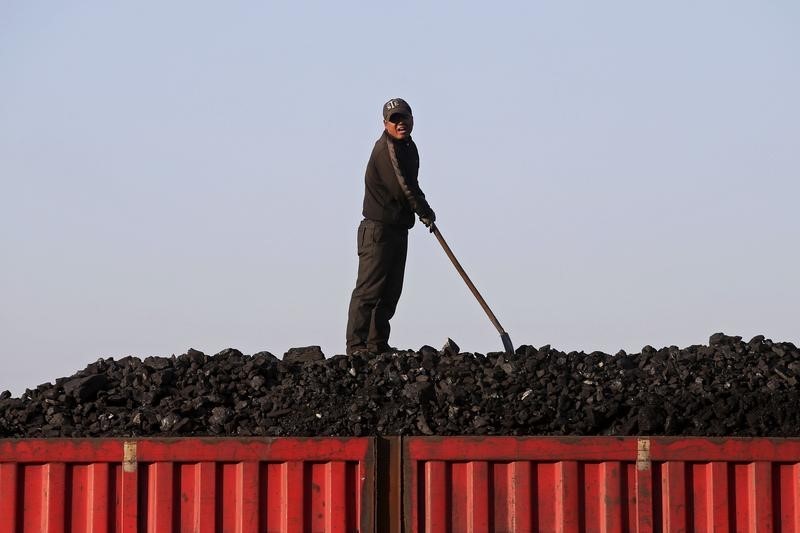TOKYO, May 17 (Reuters) - JFE Holdings Inc 5411.T , Japan's second-biggest steelmaker, aims to buy more coking coal outside of Australia to offset price risks for the steel ingredient that were made evident by a big cyclone in March, its president said on Wednesday.
"The biggest reason for volatility of coking coal prices is geographic risk, with a major part of global production coming from the east coast of Australia," JFE President Eiji Hayashida told a news conference.
"We want to diversify our procurement sources to areas including Mozambique, Russia and Canada," he said.
The price of coking coal has been volatile for more than a year, nearly quadrupling between March and late November 2016, and then halving over the next four months to end-March 2017.
March brought a new twist, though, when Cyclone Debbie hit eastern Australia, cutting rail lines in the world's biggest coking coal export region and sending prices gyrating up and down once again in April.
Japanese steelmakers, which bought 71 percent of the 59.9 million tonnes of coking coal they consumed in 2016 from Australia, were forced to scramble to get material from the United States, Canada and China to replace supply lost or delayed due to the cyclone. said miners in Australia needed to be better prepared for the cyclones that frequently hit the area.
"We strongly hope that miners will make more efforts, such as reinforcing infrastructure, to mitigate impacts from natural disasters," he said.
Five miners in the cyclone-hit region, including BHP BHP.AX , BLT.L and Glencore GLEN.L had to invoke force majeure - a clause typically invoked when producers cannot meet contracts due to natural disasters - as multiple landslides and flooding knocked out major coal rail networks. rail links have been restored, but vessels loading coal from Australia's Bowen Basin could be facing delay for another couple of months before shipments return to normal. also said JFE was still set to build a steel plant in Mexico with U.S. company Nucor Corp (NYSE:NUE) NUE.N , although it is closely watching U.S. policy because of President Donald Trump's threats to tear up a regional trade pact.
"To be honest, we have no idea what policy the U.S. government will adopt, but we may see a hard line given the current cabinet members related to trade," Hayashida said.
Earlier this month, U.S. trade officials said their anti-dumping and subsidy probe found carbon and alloy steel cut-to-length plate from eight foreign producers including Japan harms American manufacturers, locking in duties on the imports for five years.
